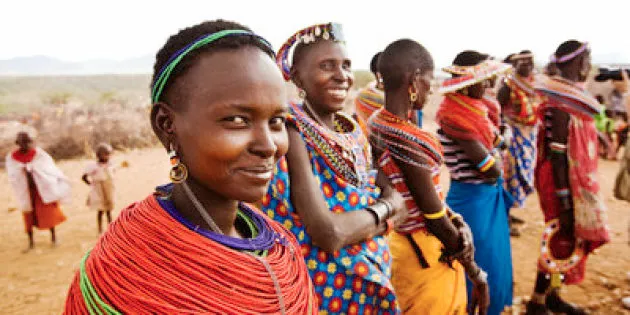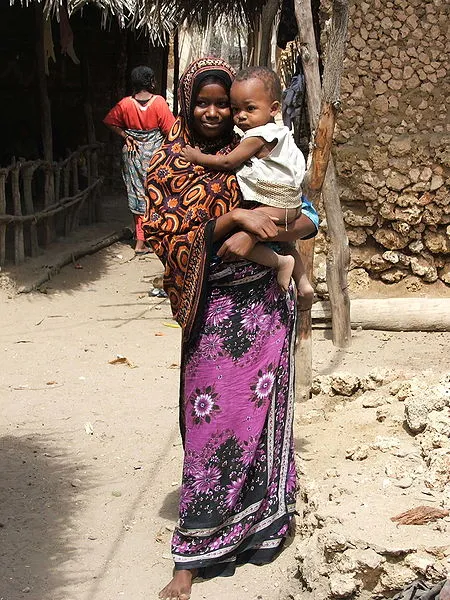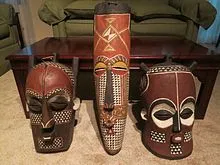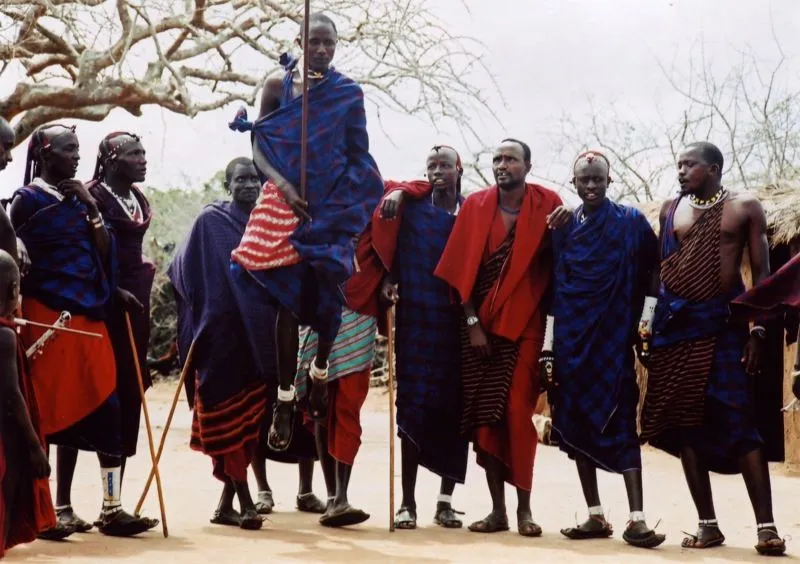
Recently I have been having so much fun exploring African "fun" places and showing them to the world.
But today on #insideafrica I'll be taking a different twist, I'll be telling you a little about African cultural Values.
Culture is often seen as the sum total of the peculiarities shared
by a people, a people's values can be seen as a part of their culture. In discussing African culture
and values, we are not presupposing that all African societies have the same explanation(s)
for events, the same language, and same mode of dressing and so on. Rather, there are
underlying similarities shared by many African societies which, when contrasted with other cultures, reveal a wide gap of difference.
In African thus there are quite a number of similarities in the culture and values but it varies and most times it differs by religious beliefs. Some Part of Africa are mostly dominated by the Islamic people (Islamic country) and this plays a vital role is their mode of dressing, worshipping, lifestyles, communication and relations. These countries parts operate a central system that promotes its culture and values to the world and infuse rule that ensures proper adherence to these cultural values.
The culture of a people is what marks them out distinctively from other human societies in the family of humanity.
The full study of culture in all its vastness and dimensions belongs to the discipline known as anthropology, which studies human beings and takes time to examine their characteristics and their relationship to their environments. Culture, as it is usually
understood, entails a totality of traits and characters that are peculiar to a people to the extent that it marks them out from other peoples or societies. These peculiar traits go on to Include the people's language, dressing, music, work, arts, religion, dancing and so on.
African Value
Basically the value of a thing or person depends on the worth of that particular thing. Just as an
object is seen to be of a high value that is treasured, our beliefs about what is right or wrong that are worth being held are equally treasured.

A value can be seen as some point of view or conviction which we can live with, live by and can even die for. This is why it seems that values actually permeate every aspect of human life. For instance, we can rightly speak of religious, political, social, aesthetic, moral, cultural and even personal values. We have observed elsewhere that there are many types and classifications of values. As people differ in their conception of reality, then the values of one individual may be different from those ofanother.
Life seems to force people to make choices, or to rate things as better or worse as well as formulate some scale or standard of values. Depending on the way we perceive things we can praise and blame, declare actions right or wrong or even declare the scene or objects before us as either beautiful or ugly.
Each person, as we could see, has some sense of values and there is no society without some value system (Idang 2007: 4).

A culture is an embodiment of different values with all of them
closely related to each other. That is why one can meaningfully talk about social, moral, religious, political, aesthetic and even economic
values of a culture. Let us now look at these values piece-meal, as this would give us an understanding how they manifest in an African
culture and the importance being attached to them.
SOCIAL VALUES
Social values can simply be seen as those beliefs and practices that are practised by any particular society. The society has a way of dictating the beliefs and practices that are performed either routinely by its members or performed whenever the occasion demands. Hence, we have festivals, games, sports and dances that are peculiar to different societies.
These activities are carried out by the society because they are seen to be necessary.
Some social values, especially in African society, cannot exactly be separated from religious, moral, political values and so on. This is why we can see that in a traditional African society like in Ibibio land (Nigeria), festivals which were celebrated often had religious undertones - they ended with sacrifices that were offered to certain deities on special days in order to attract their goodwill on the members of the society. Social values are backed by customary laws.
They comprise of those traditional carnivals that a people see as necessary for their meaningful survival. Let us illustrate with an example: the new yam festival as practised in Ibibio land has a way of encouraging hard work and checking famine. It was a thing of shame for any man to buy yams for his family within the first two to three weeks after the festival. Doing so would expose a man as being too lazy.
These festivalsreally discipline the society because nobody is to do anything when it is not time. For instance, new yam could not be eaten until the new yam festival has been celebrated.
MORAL VALUES
African culture is embedded in strong moral considerations. It has a system of various beliefs and customs which every individual ought to keep in order to live long and to avoid bringing curses on them and others. Adultery, stealing and other forms of immoral behaviour are strongly discouraged and whenever a suspected offender denies a charge brought against him, he would be taken to a soothsayer or made to take an oath for proof of innocence. In Ibibio land for instance, ukang (ordeal) is very popular as a method of crime detection. The soothsayer who specialises in it sets a pot of boiling oil, drops a stone into it and asks the suspects to attempt to retrieve the stone. The guiltless can reach to the bottom of the pot and retrieve the stone without the hair on his arms getting burnt. But when the culprit approaches the pot, it rages and boils over in a manner that even the most daring criminal would hesitate to make an attempt at retrieving the stone. The fear of being made to go through such ordeal or to be stripped naked and taken round the community as in the case of stealing, adequately checks crimes of some sort.
African proverbs and wise sayings have a rich repository of wisdom. The proverbs warn the African against evil conduct and, according to Mbiti (1977: 8), are "therefore a major source of
African wisdom and a valuable part of African heritage". African culture has a moral code that forbids doing harm to a relative, a kinsman, an in-law, a foreigner and a stranger, except when such a person is involved in an immoral act; and if that is the case, it is advisable to stay away from such an individual and even at death, their corpses would not be dignified with a noble burial in a coffin and grave. Mothers of twins were not welcome and were regarded as the harbinger of evil, hence unacceptable.

RELIGIOUS VALUES
Religion in African societies seems to be the fulcrum around which every activity revolves. Hence religious values are not toyed with.
African traditional religion, wherever it is practised, has some defining characteristics. For instance, it possesses the concept of a Supreme Being which is invisible and indigenous. It holds a belief in the existence of the human soul and the soul does not die with the body. African
traditional religion also has the belief that good and bad spirits do exist and that these spirits are what make communication with the Supreme Being possible. Above all, it holds a moral sense of justice and truth and the knowledge of the existence of good and evil (Umoh 2005: 68).
African religious values seem to permeate every facet of the life of the African and the African believes that anything can be imbued with spiritual significance.
The worship of different deities on different days goes on to show that the African people hold their religious values in high esteem. Sorcerers and diviners are seen to be mediating between God and man and interpreting God's wishes to the mortal.
The diviners, sorcerers and soothsayers help to streamline human behaviour in the society and people are afraid to commit offences because of the fear of being exposed by the diviners and sorcerers.

POLITICAL VALUES
The African society definitely has political institutions with heads of such institutions as respected individuals. The most significant thing about the traditional society is that the political hierarchy begins with the family. Each family has a family head; each village has a village head.
From these, we have clan head and above the clan head, is the paramount ruler. This kind of political arrangement is observable in the Southern part of Nigeria. Prior to the coming of Western colonisation and its subsequent subversion of the African traditional political arrangements, African societies had their council of chiefs, advisers, cult groups, and so on. It was believed that disloyalty to a leader was disloyalty to God and the position of leadership was either hereditary or by conquest. In Akwa Ibom State,
Nigeria, for instance, even though the traditional political institution was overwhelmingly totalitarian, there were still some checks and balances.
Any ruler who attempted to usurp powers was beheaded by the Ekpo cult. Antia
(2005: 145) writes that "such checks and balances were enforced by the existence of secret societies, cults, societal norms, traditional symbols and objects, various classes of chiefs who performed different functions on the different aspects of life". Hence, with respect to political values, we can see that it is inextricably linked with religious, social, moral values and so on. It is the political value that a people hold which makes them accord respect to their political institutions and leaders.
Thanks for reading....
To be continued... On the concluding episode I'll be talking a look into Africa's asthestic values, and the problem of change as it relates to African values.
Note some of the contents of this post was gotten from link feel free to read for references.
